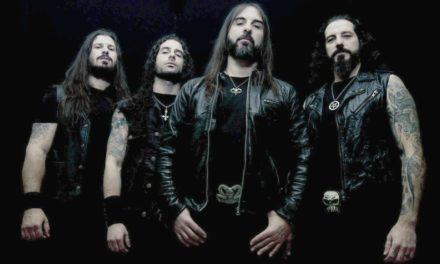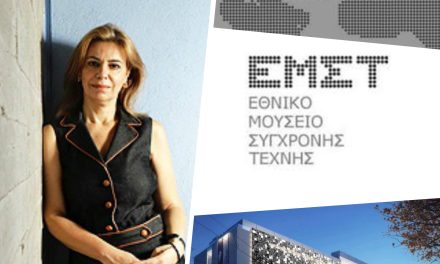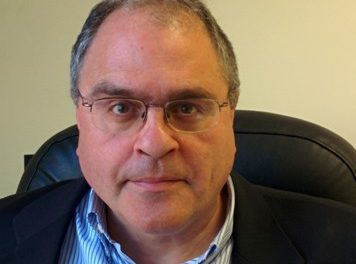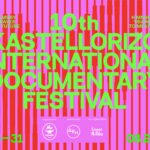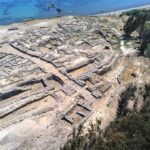The documentary film The New Greek Americans 1960–2018 (2019), focusing on the Americans of Greek descent and their relationship with their identity and their heritage, has won the 1st prize for an International Feature Length Documentary Film and the Special Award of the International Films Jury at the International Documentary Festival of Ierapetra (IDFI).
The film, a chronicle of the second and third-generation Greek Diaspora in the USA, is the final part of a trilogy series titled The Greeks of Southern California – Through the Century and Beyond. Written and directed by Anna Giannotis, the three documentary films –all narrated by Academy award-winning film and stage actress, Olympia Dukakis (1931-2021)– highlight the features of the Greek community in the United States, and especially the Los Angeles area.
The first part, The Pioneers: 1900-1942 (2002) received the prestigious Award of Excellence from the Film Advisory Board and the Best Documentary Award at the 2003 International Panorama of Independent Filmmakers Festival in Thessaloniki. The second part of the series, The Promise of Tomorrow: 1940-1960, released in 2009, won Best Feature Documentary in the 2010 Beverly Hills Film, TV & New Media Festival and also the Award of Excellence from the Hollywood Film Advisory Board.
The trilogy has been produced by the Greek Heritage Society of Southern California (GHS), a non-profit California corporation, established in 1985 to preserve the rich culture, heritage and traditions of Greek immigrants in Southern California. GHS documents the story of early Greek immigrants and highlights continuing generations, and has the goal to establish a Greek-American Archive and Resource Center.
On the occasion of the film’s recent distinctions, Greek News Agenda spoke* with GHS president, Bessie Karras-Lazaris and with the documentary’s director and producer, Anna Giannotis and Antonia Lianos.
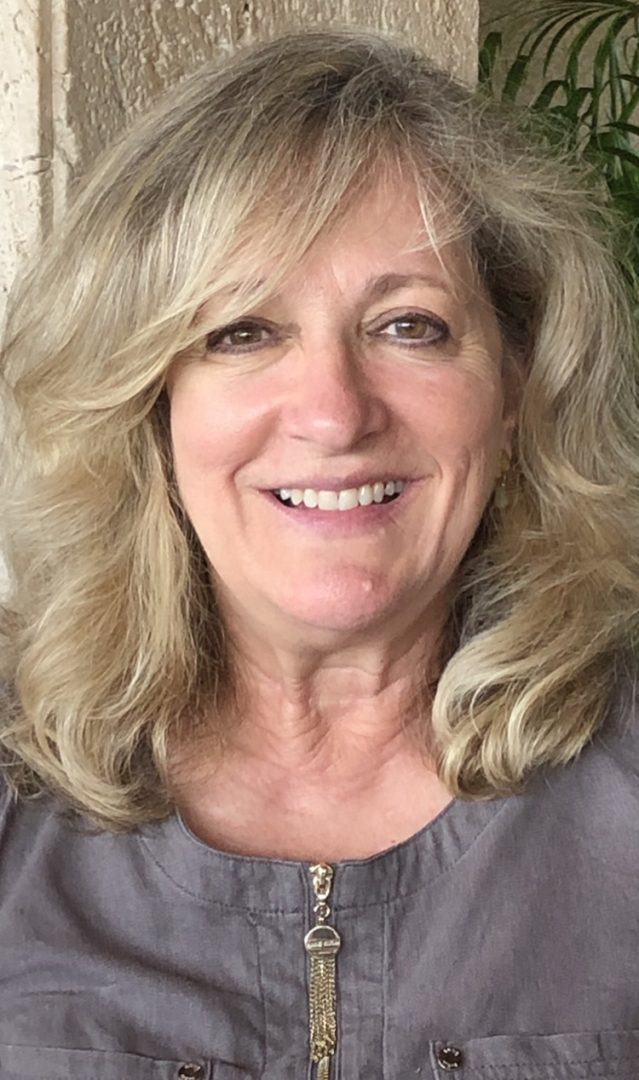
Bessie Karras-Lazaris is a Professor at the Graduate Program in Linguistics at the California State University, Northridge (CSUN), and worked as the Director of Academic Programs, Student Success in the Intensive English Program and International Programs and Partnerships Program at CSUN. She has been the President of the Greek Heritage Society of Southern California since 2022 (Executive Board Member since 1997). She first joined the group when asked to translate oral histories from Greek to English; those oral histories turned into the Greeks of Southern California documentary trilogy, where she worked on the production as well as the translations and subtitles.
Ms Karras-Lazaris, are the younger members of the Greek community showing interest in their heritage, and the history of their roots? Are they participating in the various activities and events hosted by your society?
Our organization was established in 1985, so as you may imagine, many of the original founders are now gone. For example, our longest running president and one of the original founders died only a few months ago at the age of 92. She was active and had a passion for GHS until the day she left us. As President, one of my goals has been to bring in a new generation of members who can keep the mission of GHS but accomplish our goals in new ways by bringing in new ideas.
I must say that I have been successful in accomplishing that goal. I have brought in a new generation of board members who have also brought in other new members, and the interest keeps growing. In January, we held a very successful historical photography exhibit, and our newest members were an enormous help. They helped with social media, graphics, displays, fund raising, and getting the word out to their peers. Most of all, they are excited to explore their roots, connect with their heritage, and improve their Greek language skills. Our new members are now in the process of creating social events to draw in a younger crowd, and they are full of ideas for future activities and projects.
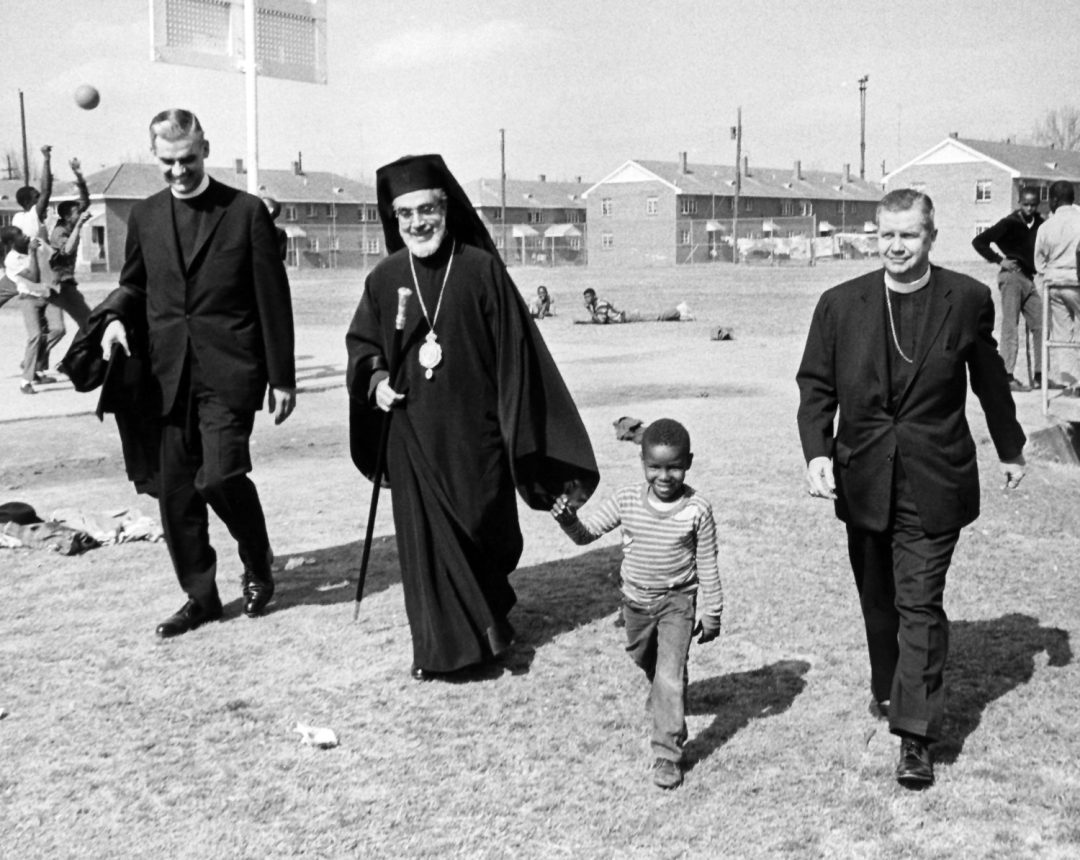
Your society has produced three documentaries, focused on three different generations of Greek-Americans. How would you compare the younger generations to the previous ones – both in terms of honoring their legacy and in terms of adapting to the society around them?
All three award-winning documentaries were narrated by academy-award winning actress, Olympia Dukakis. The first documentary, The Pioneers (1900-1942) is about the stories and struggles of the Greek immigrants. This group left Greece, primarily because of economic reasons, struggled to adapt to a new culture and language, but they succeeded in creating a positive life for themselves and a comfortable future for their families. The second film, The Promise of Tomorrow (1940-1960) is about first generation Greek Americans, the children of the immigrants. This generation and the time frame is an interesting one because this generation tried to assimilate, to fit into the community they lived in. Therefore, even though at home they had a strict upbringing and grew up in a very Greek household, outside the home, they wanted to fit in, to be American. Therefore, they faced the experience of having two identities, Greek in the house and American outside the house.
The third film, The New Greek Americans, explores a very large time period (1960-2018) where many historic and political changes took place that impacted the lives of second and third generation Greek Americans. Therefore, there are many stories that are told that reflect cultural differences between the home and the changing world. Again, we hear about the duality of being Greek and being American, but we also hear stories about how the newer generations are embracing their culture and their heritage. The question raised in the film is how will we maintain our culture, our heritage, and our language?
However, I am optimistic. There is a heightened interest in genealogy, where individuals want to discover their roots and learn where they are from. They want to embrace their culture in a number of different ways, through music, food, dance, and of course, travel. They want to know the stories of their grandparents, to collect things that represent the past and discover their significance, and they want to find others like them who share common roots. This heightened interest may be because they are detached from the struggles of the pioneers and first generation. They can now view and appreciate what came before. Also, this discovery is easier now because of social media, DNA testing, etc. I am optimistic that the new generation will have a lot to offer in terms of Greek Heritage. Their interest in rediscovering the past is refreshing.
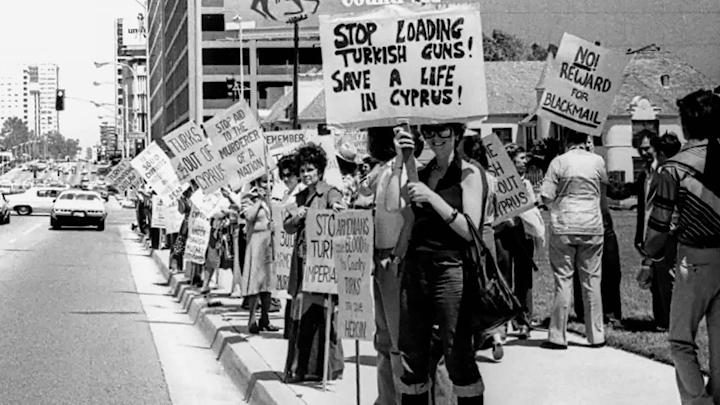
Now that this very long project of the three documentaries is completed, are there any similar future projects? Where will you focus your efforts?
It took 20 years to complete our three films. Creating, producing, and funding three full-length documentaries was challenging in terms of content, time, and finances; but those of us who worked on the films clearly saw the importance of preserving our history and our heritage with this project. The work was definitely a labor of love. The last film in our trilogy, The New Greek Americans, for example, just won two awards at the 10th International Documentary Film Festival in Ierapetra, Crete. Our films do not only tell the story of Southern California. They tell the story of Greeks around the globe that many other ethnic groups can relate to.
The material for the films came from over 500 interviews we conducted to fulfill the original goal of the Greek Heritage Society, which was to collect and preserve oral histories. However, we had collected so much material, that those interviews became much more. That is when and why I joined the society, to work on the oral histories, but instead I became part of the production team of these wonderful films. Now it is time to continue with our original goal to create an oral history library with interviews, photos, and documents that tell the history of the Greeks of Southern California. Therefore, the project that we are now working on is to create a digital library, where we will archive video and audio interviews, photos, documents and more and provide access to the public so that anyone can access this important information and these fascinating stories.
Our collection keeps growing, and we keep adding more material to this wonderful oral history project. There is a great interest in our community in maintaining and sharing these important archives. To complete the digital library and maintain it, we need funding, so we have been holding events, which are also cultural events as a way of bringing our community together for this purpose. Our goal is not only to share these stories but also to preserve them and our heritage for generations to come.

The films’ director, Anna Giannotis, is a writer/producer, educator, filmmaker and actress. Apart from writing and directing the award-winning documentary trilogy produced by GHS, she has written and produced several plays, while she has been performing on stage since she was 18.
Ms Giannotis, in your opinion, do young contemporary Americans of Greek heritage embrace their roots as much as other American citizens with various ethnic backgrounds?
If you are referring to Gen Z (current ages 9-24) I can only speak from my observations as a Filmmaker (having interviewed several young Greek Americans) and my experience as a Filmmaking Instructor (non Greek students, 1st & 2nd generations of various cultures, who fall into that age range.)
The young Greek Americans are embracing the culture by participating in dance, Greek school, & church sponsored activities which include sports.
My students from various backgrounds often take family vacations to their country of origin which is a great experience for families who have emigrated to America to keep their children directly engaged with the extended overseas family. Young Greek American families are also doing the same by visiting the “horio” where a Yiayia or Pappou grew up.
Do you think that people born before and after the internet and new technologies’ boom can be regarded as one generation?
This is an interesting question. Being part of the “Baby Boomer” generation, we were not exposed to the internet or social media until we reached middle age. Communication with relatives in Greece was infrequent either via letters, phone calls, or visits. Now with the explosion of technological communication it is so easy to communicate on a daily basis via email, FaceTime or Skype, and annual visits to Greece are more frequent. So, my generation experienced both pre and post technologies but we are still the generation of Post WWII.
Do you feel that the representation of Greek-Americans in the media and pop culture of the USA does them justice? Are there any stereotypes that you think should be put to rest?
I think the stereotypes of Greek Americans are becoming less offensive because of the accomplishments of each generation in every profession, political, and business area.
The opportunity that the first generations had to educate themselves, including veterans of war with the GI bill, and the hard work of their parents who sacrificed to afford their children a chance to attend college has changed the stereotypical uneducated immigrant who is trying to integrate into America life. Also, every sequential generation has adopted English as their first language so the discrimination that the early immigrants endured because of their thick accents does not exist.
But there are always a minority of individuals in any country who target groups with different customs, religious beliefs and cultural celebrations with distain. That stems from ignorance and can only be remedied by more interaction and communication among cultures.
Is there something that you feel you learned making this documentary, which you wouldn’t have figured out otherwise?
The Greek pride of each generation is profound and continuous. I grew up in a household that mirrored this but didn’t realize how many fellow Greek Americans from every generation felt the same deep pride.
Our ancient and modern history are interwoven into a fabric that, I believe, will endure through the ages. Our American democracy is based on the fundamentals of ancient Greek ideals. Contributions in science, the arts, and politics stem from our ancestors! The courageous Greeks’ struggle for independence and freedom in modern history is a badge of honor and we are eternally grateful for their endurance. Greek pride is visceral.
We recently interviewed Maria Cominis about her play Women of Zalongo, in which you have starred. How was your experience? What would you say that such a production has to offer to young Greek-Americans, especially women?
Thank you for asking this question. First of all, Maria Cominis’ play was a remarkable theatre experience for the audiences as well as the actors. I’m not making this up. My friends and family who attended were sometimes speechless or exuberant and sometimes both! We played on a beautiful university stage, in a smaller house in Los Angeles, and for a limited time in New York City at the prestigious Herbert Bergorf Playwrights’ Theatre.
Some of us (the actors) were of Greek background or of another deep rooted culture and we could all relate to the story of several generations of women from one family who fight to overcome tyranny, suppression, and independence.
I played a Yiayia (Yiayia Mimi) from the old world (c. Early 1900’s near Constantinople) trying to keep my family from starvation and enslavement.
The story travels back and forth to modern times in a brilliantly executed story that touched all age groups. Many of the younger generation did not know the history of how Greeks endured over Ottoman rule, especially the women. This play was educational as well as entertaining and my hope is for more opportunities to stage Women of Zalongo throughout the US and abroad.
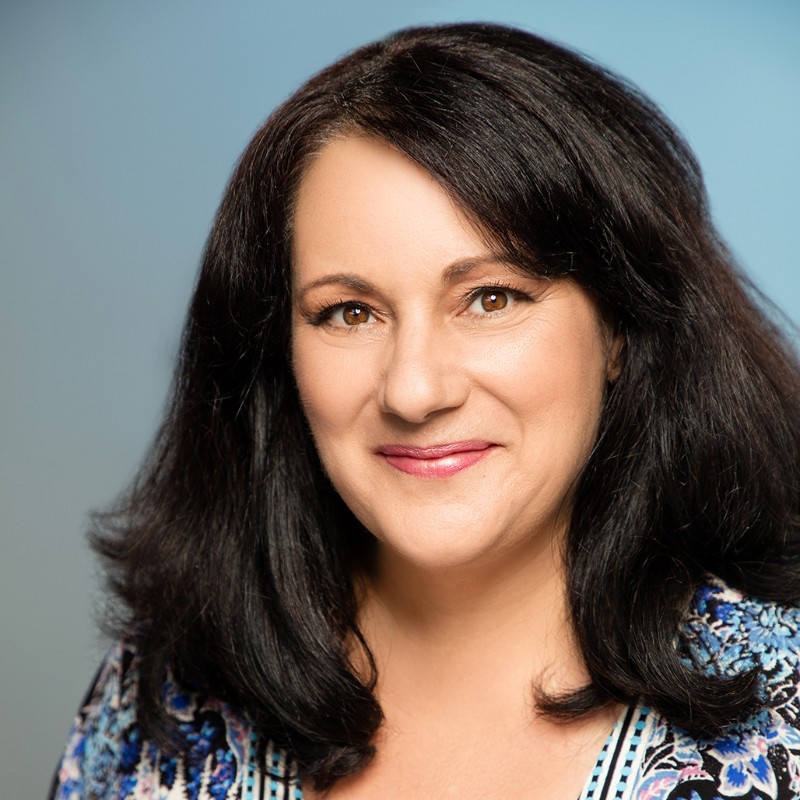
The producer of The New Greek Americans –and of the previous documentary, The Promise of Tomorrow– Antonia Lianos, has had a 30-year career as an accomplished Producer and Executive in the entertainment industry, working or consulting for several companies including Paramount Pictures, Jim Henson Studios, Spelling Entertainment, Republic Pictures, Saturn Software, and Liberty International; she was an Executive Producer on the feature film Winchester starring Helen Mirren and a Producer on the documentary Soundies: A Musical History.
Ms Lianos, how did it feel to be honored with two awards at the Ierapetra Film Festival?
It was just over 100 years ago that my grandparents immigrated from Crete to America. So, for me, being honored with two awards at the Ierapetra Film Festival in Crete for a film that documents the many ways my children and other Greek-Americans celebrate their rich Greek culture was particularly poignant. By continuing the Greek traditions, no matter how few or how small, then these generations honor the memory of my grandparents and every brave, fearless Greek immigrant who imprinted themselves on the colorful tapestry of the United States. May their memory be eternal.
Is there something that you feel you learned making this documentary, which you wouldn’t have figured out otherwise?
Producing this film gave me insight to the cultural consciousness of the younger generations. When participating in Greek cultural activities, third and even fourth generation Greek Americans have a stronger, more prideful sense of identity than I ever had as a second-generation Greek-American. Not that I was embarrassed by my Greek heritage, but I always had to make excuses as to why our religion and traditions were different, why the food was strange, why we were so loud. Now, my children and their friends don’t make excuses, they display the Greek culture with vigor, explain how their Greek heritage shaped American culture and proudly claim their place as Greek-Americans.
*Interview by Nefeli Mosaidi (Intro photo: Contemporary Greek School students at the Saint Sophia Cathedral in Los Angeles [from the documentary film The New Greek Americans 1960–2018]; photos appear courtesy of Bessie Karras-Lazaris, Anna Giannotis and Antonia Lianos)
Read also via Greek News Agenda: #BlackHistoryMonth | Greek Americans and the Civil Rights Movement; Alexander Kitroeff: “Greek Diaspora has affected the history of host countries around the world”; Yiorgos Anagnostou on Greek America, Greek American studies and the diasporic perspective as syncretism and hybridity; “Women of Zalongo”: a play about the ongoing struggle of women for autonomy
TAGS: ARTS | FESTIVALS | GLOBAL GREEKS | HERITAGE


